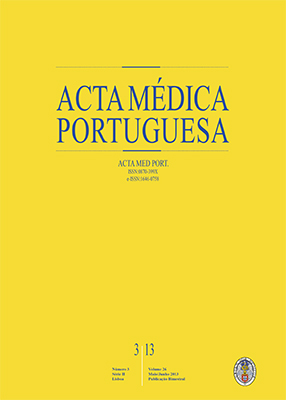Patients’ Access to their Medical Records
DOI:
https://doi.org/10.20344/amp.123Abstract
Until recently, the medical record was seen exclusively as being the property of health institutions and doctors. Its great technical and scientific components, as well as the personal characteristics attributed by each doctor, have been the reasons appointed for that control. However, nowadays throughout the world that paradigm has been changing. In Portugal, since 2007 patients are allowed full and direct access to their medical records. Nevertheless, the Deontological Code of the Portuguese Medical Association (2009) explicitly states that patients’ access to their medical records should have a doctor as intermediary and that the records are each physician’s intellectual property. Furthermore, several doctors and health institutions, receiving requests from patients to access their medical records, end up requesting the legal opinion of the Commission for access to administrative documents. Each and every time, that opinion goes in line with the notion of full and direct patient access. Sharing medical records with patients seems crucial and inevitable in the current patient-centred care model, having the potential to improve patient empowerment, health literacy, autonomy, self-efficacy and satisfaction with care. With the recent technological developments and the fast dissemination of Personal Health Records, it is foreseeable that a growing number of patients will want to access their medical records. Therefore, promoting awareness on this topic is essential, in order to allow an informed debate between all the stakeholders.Downloads
Downloads
Published
How to Cite
Issue
Section
License
All the articles published in the AMP are open access and comply with the requirements of funding agencies or academic institutions. The AMP is governed by the terms of the Creative Commons ‘Attribution – Non-Commercial Use - (CC-BY-NC)’ license, regarding the use by third parties.
It is the author’s responsibility to obtain approval for the reproduction of figures, tables, etc. from other publications.
Upon acceptance of an article for publication, the authors will be asked to complete the ICMJE “Copyright Liability and Copyright Sharing Statement “(http://www.actamedicaportuguesa.com/info/AMP-NormasPublicacao.pdf) and the “Declaration of Potential Conflicts of Interest” (http:// www.icmje.org/conflicts-of-interest). An e-mail will be sent to the corresponding author to acknowledge receipt of the manuscript.
After publication, the authors are authorised to make their articles available in repositories of their institutions of origin, as long as they always mention where they were published and according to the Creative Commons license.









